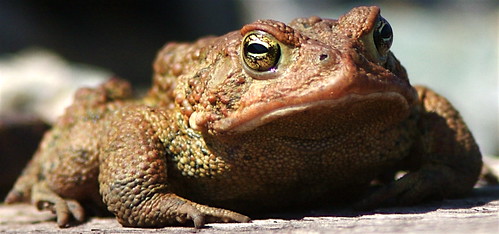Not to fan the annual flames of rabies hysteria we usually get in the Brooklyn blogosphere, but the New York City Department of Health, in response to recent identification of rabid animals in Manhattan, the Bronx, and Queens, issued a press release today to remind New Yorkers to 1) avoid contact with wild animals, and 2) have your pets vaccinated for rabies. Note that NYC law requires rabies vaccinations of pets.
Six rabid animals — all raccoons — have been identified in New York City this year. Four were found in the Bronx, one in Manhattan (near Inwood Hill Park), and one in Queens (Long Island City). Raccoons are the most commonly reported rabid animals in New York City. Rabid raccoons are a relatively common occurrence in Staten Island and the Bronx, but rare in Queens and Manhattan. Bats with rabies have also been found in all five boroughs.
People and unvaccinated animals can get rabies, most often through a bite from an infected animal. Infection leads to a severe brain disease that causes death unless the person is treated promptly after being bitten. To reduce the risk of rabies, New Yorkers should avoid all wild animals, as well as any animal that seems sick, disoriented or unusually placid or aggressive. Report such animals by calling 311. Animals that have attacked or may attack should be reported to 911.
The six reported animals lags far behind the 19 reports for 2008. In recent history, Staten Island has the highest incidence of rabies among wild animals, followed closely by the Bronx. Queens, Manhattan and Brooklyn lag far behind. See Rabies in NYC: Facts and Figures for more info.
To protect yourself against rabies
- Do not touch or feed wild animals, or stray dogs or cats.
- Keep garbage in tightly sealed containers.
- Stay away from any animal that is behaving aggressively or a wild animal that appears ill or is acting unusually friendly. Call 311 or your local precinct to report the animal.
- If you find a bat indoors that may have had contact with someone, do not release it before calling 311 to determine whether it should be tested. For information on how to safely capture a bat, visit http://www.health.state.ny.us/diseases/communicable/zoonoses/rabies/.
To protect your pet against rabies
- Make sure your dog or cat is up-to-date on rabies vaccinations.
- Do not leave your pets outdoors unattended.
- Do not try to separate animals that are fighting.
- If your pet has been in contact with an animal that might be rabid, contact your veterinarian, and report the incident to 311.
- Feed pets indoors.
If you are bitten by an animal
- Immediately wash the wound with lots of soap and water.
- Seek medical care from your health care provider.
- If you know where the animal is, call 311 to have it captured.
- If the animal is a pet, get the owner’s name, address and telephone number to give to the Health Department so they can ensure the animal is not rabid.
- Call the Animal Bite Unit (212-676-2483) between 9 a.m. and 5 p.m., or file a report online at www.nyc.gov/html/doh/html/vet/vetegp.shtml.
- For information about medical follow-up, call 311 or your medical provider.
[bit.ly]
Related Content
Rabies in NYC: Facts and Figures, 2008-07-08
Meta: Rabies More Popular Than Sex, 2007-03-07
News: Raccoon Tests Positive for Rabies in Manhattan, 2007-02-28

